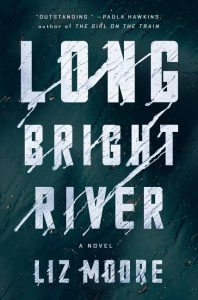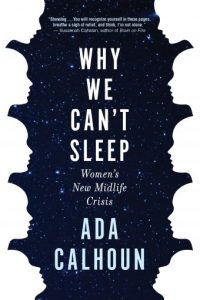
Kiley Reid’s Such a Fun Age, Liz Moore’s Long Bright River, David Zucchino’s Wilmington’s Lie, and E. J. Koh’s The Magical Language of Others all feature among the Best Reviewed Books of the Week.
1. Such a Fun Age by Kiley Reid
12 Rave • 5 Positive • 1 Mixed
“… a bold, urgent, essential exploration of race, class, labor, friendship, identity and self-delusion, both deliciously readable and incredibly complex. This smart, quick-paced novel tracks the fallout and triumphs that follow its characters’ slightest gestures and impulses. Without ever resorting to didactic tones or prescriptive proclamations, Reid portrays the way different bodies are read in public spaces … each page of Reid’s prose is a faceted prism … From a craft perspective, Reid’s debut is an exemplar novel: Each character’s voice is perfectly distinct in dialogue; each text message is plausible, powerful. There is humor and not a small amount of suspense. Every element of back story is tied to a relevant future moment … Not a word is wasted, and not a nuance goes unnoticed in this masterwork.”
–Jackie Thomas-Kennedy (The Minneapolis Star Tribune)
2. Creatures by Crissy Van Meter
4 Rave • 7 Positive
“Crissy Van Meter’s vivid and moving debut, is a novel powered by atmosphere … The characters are as complex and explosive as the setting … As Creatures unfolds, Van Meter subverts narrative expectations by making long and frequent digressions away from the compelling present, pre-wedding story line, to reveal either the past or future … eventually this structure begins to sway under its own weight. The glimpses into the future beyond Evie’s wedding day expand the novel’s scope in interesting and unexpected ways. Yet these sections tend to emphasize certain emotional notes—fractured love, enduring loneliness, self-doubt—to the point of redundancy … At times, inevitability begins to outstrip surprise, and feeling is more reported than animated … In its rendering of Winter Island, though—of sea-soaked splendor and terror and rage—Van Meter’s debut is an unwavering triumph. Equally dazzling is the novel’s emotional ballast … For all the novel’s visual description, then, it’s Van Meter’s perceptive eye for this—the unseen—that makes for a coming-of-age that’s as human as it is wild.”
–Laura van den Berg (The New York Times Book Review)
Read an excerpt from Creatures here
3. Dear Edward by Ann Napolitano
3 Rave • 6 Positive
“… a haunting novel that’s a masterful study in suspense, grief and survival … Napolitano’s dual-timeline structure turns Dear Edward into a suspenseful page-turner with sprinkles of mystery, satisfying our rubbernecking urge to see the unfolding of a disaster and its aftermath … While none of the adults in either the real crash or the novel it inspired survive, Napolitano’s fearless examination of what took place models a way forward for all of us. She takes care not to sensationalize, presenting even the most harrowing scenes in graceful, understated prose, and gives us a powerful book about living a meaningful life during the most difficult of times.”
–Angie Kim (The New York Times Book Review)

4. Long Bright River by Liz Moore
4 Rave • 1 Positive • 1 Mixed
“… extraordinary … the mundane has been made menacing … Moore is an astute social observer. Her depictions of Mickey’s isolation are sharp-eyed to the point of pain … Moore is every bit as deft in constructing suspense … nervously twists, turns and subverts readers’ expectations till its very last pages. Simultaneously, it also manages to grow into something else: a sweeping, elegiac novel about a blighted city. As Chandler did for various sections of Los Angeles, Moore excavates Kensington and surrounding areas in Philadelphia, illuminating the rot, the shiny facades of gentrification and the sturdy endurance of small pockets of community life.”
–Maureen Corrigan (The Washington Post)
5. Topics of Conversation by Miranda Popkey
1 Rave • 8 Positive • 1 Pan
“Popkey writes in a certain kind of style—masterfully controlled, delightfully chilly—and she writes about a certain kind of thing: erotic desire and its relation to power … Desire always exceeds our ability to articulate or define it, but Popkey’s sentences, in their relentless drive to clarify and elucidate, try the impossible task anyway … Sometimes, the language can sound overly fussy … But then you realize that the fussiness—or, really, the drive for precision—is motivated by need. It’s the fussy precision that keeps anarchic desire at bay, or at least momentarily tamed … Stories shape desire, Popkey suggests, and desire shapes stories. Both shape, even determine, the self.”
–Anthony Domestico (The Boston Globe)
Read an excerpt from Topics of Conversation here
**
1. The Magical Language of Others by E. J. Koh
5 Rave • 4 Positive
“… [a] profound literary memoir of intergenerational wounds … formally daring, making full use of various parallelisms to create a rhythm between past and present … The letters, as Koh explains it, are in ‘kiddie diction,’ lending a fascinating verisimilitude to Koh’s adult narration of what happened to her, her mother and her grandmothers … We’re so fortunate to have this literary reckoning from a tremendously talented writer. Koh’s The Magical Language of Others is a wonder: a challenging and deep meditation on how wounds of the past and present inform our relationship with those outside of us, which is to say, everyone.”
–Anita Felicelli (The San Francisco Chronicle)
2. Wilmington’s Lie: The Murderous Coup of 1898 and the Rise of White Supremacy by David Zucchino
5 Rave • 2 Positive
“… brilliant … Zucchino does not overwrite the scenes. His moral judgment stands at a distance. He simply describes what happened and the lies told to justify it all … The details contained in the last part of the book are heart-wrenching. With economy and a cinematic touch, Zucchino recounts the brutal assault on black Wilmington … Zucchino pulls the story into our present moment … What becomes clear, at least to me, is that memory and trauma look different depending on which side of the tracks you stand.”
–Eddie Glaude Jr. (The New York Times Book Review)
Read an excerpt from Wilmington’s Lie here
3. Don’t Believe a Word: The Surprising Truth About Language by David Shariatmadari
1 Rave • 6 Positive
“… [a] lucid and insightful study of linguistics … Yet Don’t Believe A Word is too wise, and too personal, to be regarded as just another book on language: it entertains just as much as it informs … Shariatmadari, a Guardian journalist, is excellent on the way in which class associations between language and an accent are immediately forged, just as there is no such thing as a classless, accentless use of language; everyone has an accent as a social identifier … There are reminders of the gravity of language throughout, and how it distinguishes itself from ‘lesser forms’ … The odd section can be somewhat hard going, despite Shariatmadari’s obvious enthusiasm, but some good jokes make up for that … above all, this is a generous and enthralling study of the basis of how we communicate.”
–Alexander Larman (The Observer)
Read an excerpt from Don’t Believe a Word here

4. Why We Can’t Sleep by Ada Calhoun
1 Rave • 5 Positive • 3 Mixed
“Calhoun’s research offers women ways to look at but not devalue their own experiences; she addresses the fact that women often minimize their own struggles instead of recognizing how their lack of sleep, along with other physical and mental pressures, constitute legitimate crises in their own right … Calhoun’s latest will be useful for those interested in feminist theory, especially insofar as it intersects with age and class, as well as a useful resource for people struggling to find balance in their personal and professional lives.”
–Emily Bowles (Library Journal)
Ada Calhoun recommends 15 Great Books That Speak to the Lives of Middle-Aged Women
5. Sovietistan: Travels in Turkmenistan, Kazakhstan, Tajikistan, Kyrgyzstan, and Uzbekistan by Erika Fatland
1 Rave • 4 Positive • 1 Mixed
“Fatland’s anecdotes are rich and revelatory … Sovietistan blends complex history with Fatland’s own clear-eyed reporting, the devastation of the Soviet era always in the background (and sometimes the foreground). With the Russian Bear once again on the move, she plumbs the high cost of dictatorships and the human yearning for self-determination. Sovietistan is a perspicacious, vital book about little-known places and real lives; it deserves a wide readership.”
–Hamilton Cain (The Minneapolis Star Tribune)

